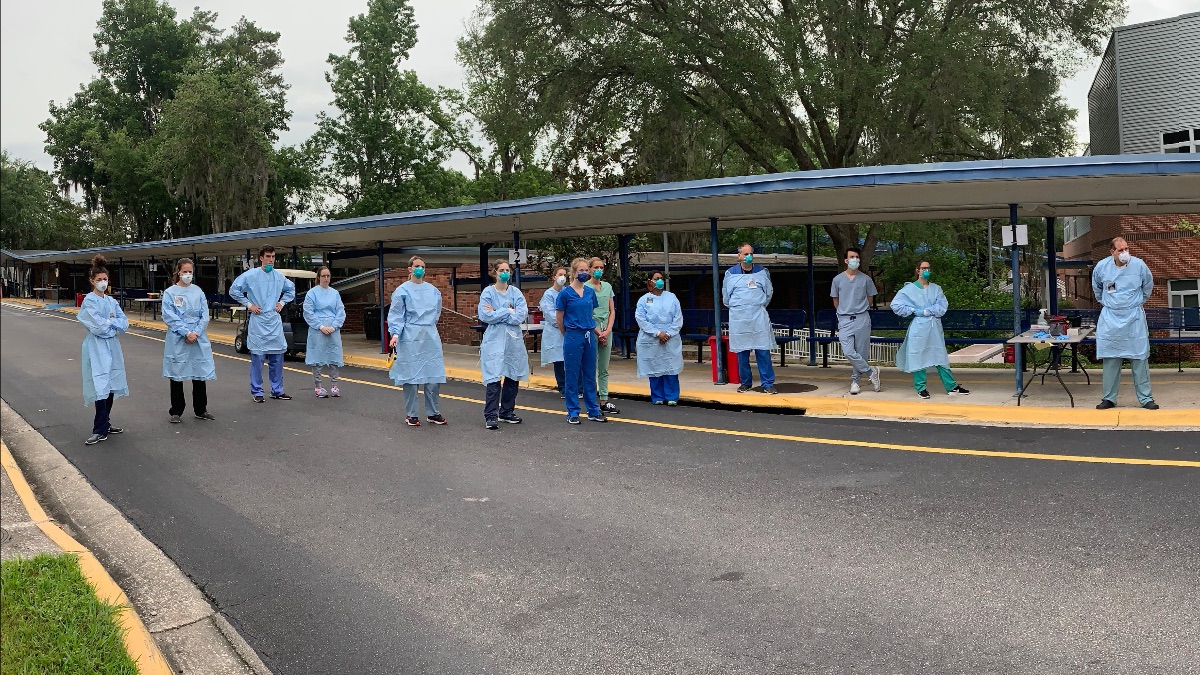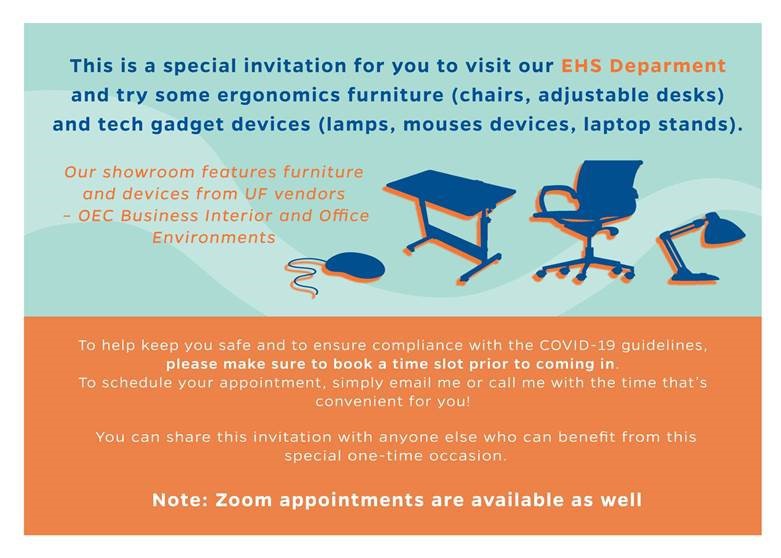October 15, 2020
UF research team studying pandemic’s effects on children and households
While many experts are focused on identifying COVID-19 cases and slowing transmission, one UF research team is focused on the pandemic’s fallout on children and households.
UF researchers affiliated with UF’s colleges of Public Health and Health Professions, Medicine and Education are analyzing the social effects of the pandemic on local school-aged children and their families across time, alongside infection rates. The study also explores connections between beliefs about COVID-19 and actions people take to protect themselves.
The researchers are six months into a cohort study of students attending P.K. Yonge Developmental Research School and their family members that tests for active and past infections from SARS-CoV-2, the virus that causes COVID-19.
But in an unusual twist, participants also respond to a questionnaire that seeks to uncover the interplay between people’s knowledge, attitudes and behaviors in response to social changes brought about by the pandemic and linked social and health outcomes in children. The researchers will also examine transmission chains within households, and what role children may play in passing the virus along.
Pictured below: UF researchers and medical professionals prepare to test school-aged children and their household contacts for COVID-19 outside of P.K. Yonge Developmental Research School last April.

Call for participants: Black Voices in Research Storytelling
 The UF Clinical and Translational Science Institute’s Diversity and Cultural Competence Council will host a Black Voices in Research Storytelling Event on Jan. 14, 2021, and is seeking Black biomedical researchers and research professionals who would like to share their stories and experiences via this livestream storytelling event. The event aims to create a platform for Black faculty, staff, postdocs and graduate students to amplify their stories, bring awareness to their experiences that have shaped how they show up in their field, and build and enrich UF’s diverse research community.
The UF Clinical and Translational Science Institute’s Diversity and Cultural Competence Council will host a Black Voices in Research Storytelling Event on Jan. 14, 2021, and is seeking Black biomedical researchers and research professionals who would like to share their stories and experiences via this livestream storytelling event. The event aims to create a platform for Black faculty, staff, postdocs and graduate students to amplify their stories, bring awareness to their experiences that have shaped how they show up in their field, and build and enrich UF’s diverse research community.
Applications are being accepted through Monday, Oct. 19, at 5 p.m.
Latinos in Business series highlights work of Heavener Associate Dean Alex Sevilla
The Latino Business Speakers Bureau recently featured Dr. Alex Sevilla, associate dean and director of UF’s Heavener School of Business. In the past year, the Heavener School has created a new career center for UF’s undergraduate business students, developed an innovative curricular focus on career and leadership skills, expanded its programs and offerings, and increased corporate engagement and recruitment on campus.
Learn more about Dr. Sevilla’s work at UF as well as his personal journey in this interview.
FLARE workshops designed to illuminate your financial journey
 FLARE, UF’s Financial Literacy and Retirement Education program, offers resources to illuminate your journey to financial security. Upcoming workshops, held via Zoom, include:
FLARE, UF’s Financial Literacy and Retirement Education program, offers resources to illuminate your journey to financial security. Upcoming workshops, held via Zoom, include:
- Florida Retirement System/DROP
Oct. 15, 2-4 p.m.
Nov. 17, 9-11 a.m.
Dec. 9, 2-4 p.m. - Medicare
Oct. 21, 2-4 p.m.
Dec. 4, 9-11 a.m.
Straighten up! It’s National Ergonomics Month
Throughout the month of October, UF Environmental Health & Safety (EH&S) is providing opportunities to learn more and participate in events designed to support your ergonomic wellbeing. Scan these tips to get started and visit the EH&S website to learn more.
- Assess your workstation configuration
- Check your posture: Head level and forward facing. Hands, wrists, and forearms flat as possible (not bent up or down). Back is fully supported with appropriate lumbar support when sitting. Feet fully supported by the floor or a footrest.
- Adjust to your chair: Push your hips as far back as they can go in the chair. Adjust the seat height so your feet are flat on the floor and your knees are equal to, or slightly lower than, your hips.
- Move the monitor: Your head should be level and not tilted up or down. Make sure the top of your computer monitor is at or slightly below eye height and at an arm’s length distance.
- Adjust your keyboard/mouse: Move the section of the keyboard that most frequently is used, in front of your body. Place the mouse as close as possible to the keyboard.
- Support your arms: An armrest essentially carries the weight of the arm so that the shoulders can ‘rest.’ Adjust the armrests so your shoulders are relaxed and elbows are at about a 90° angle while you are typing.
- Get up and move: Prolonged sitting can lead to pain and discomfort, so get up and move your body for a few minutes every half-hour.
